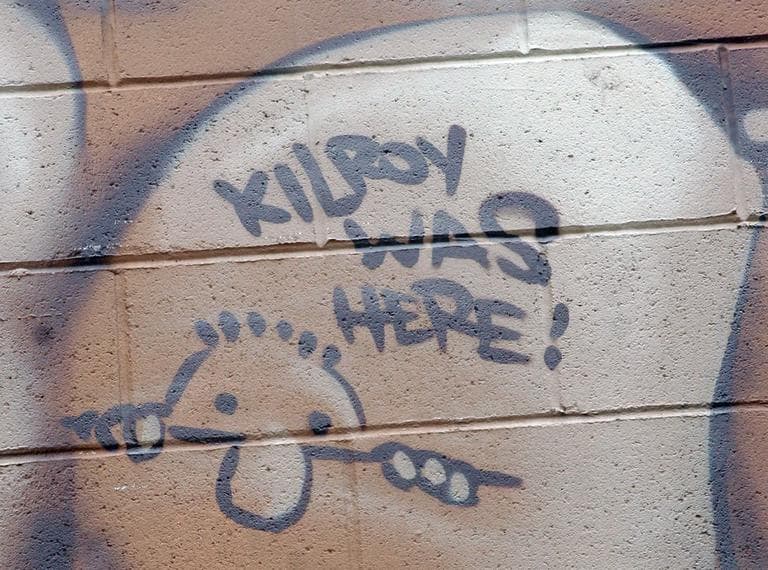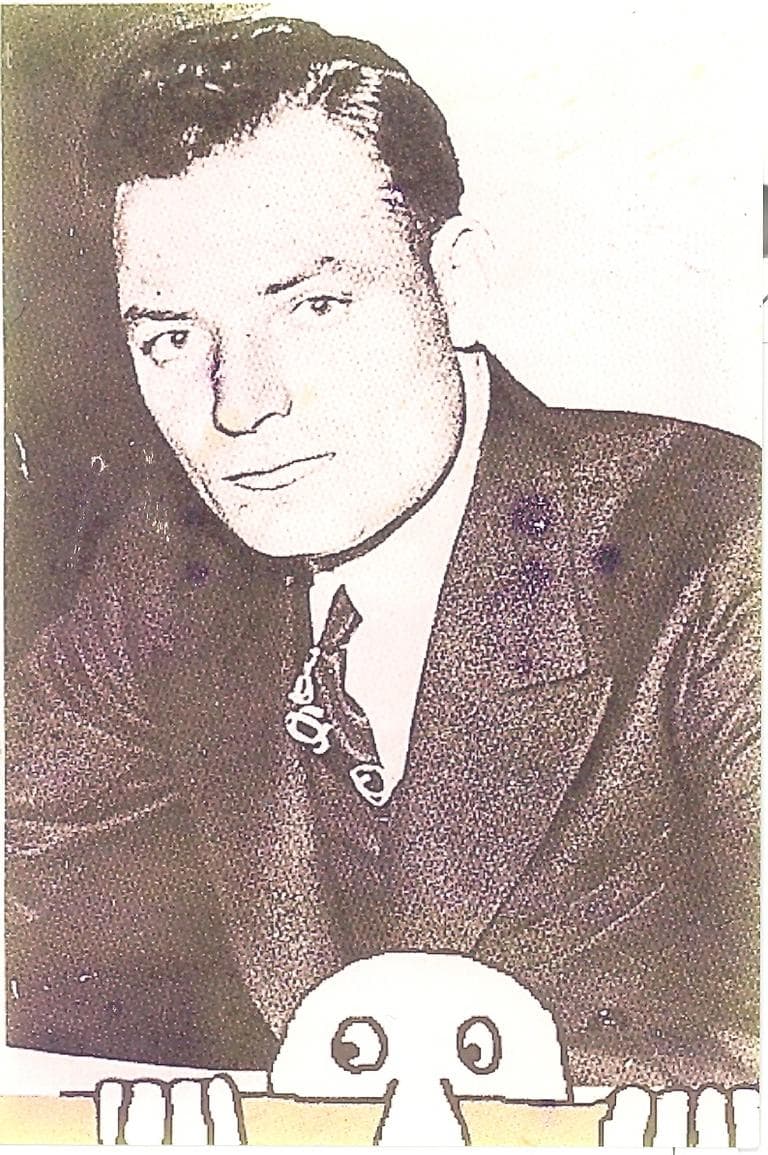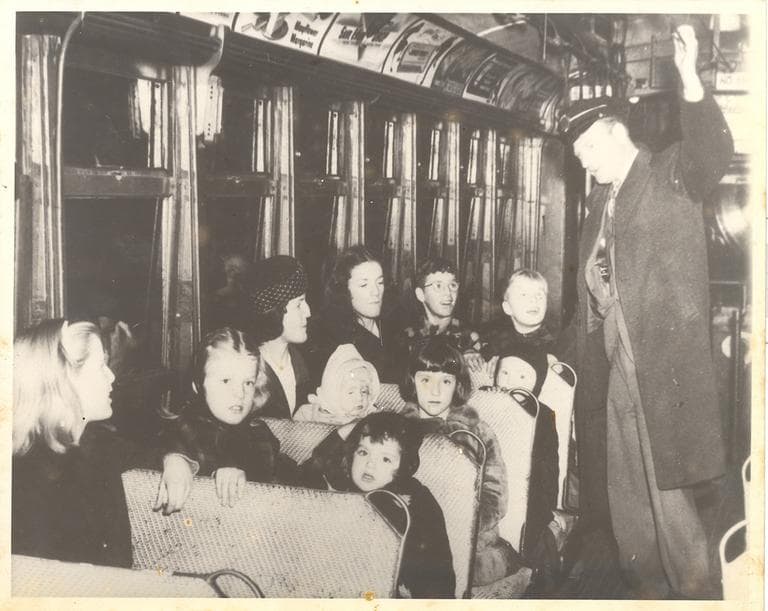Advertisement
'Kilroy Was Here' In Mass.
Resume
You’ve probably seen it scrawled somewhere. The three words "Kilroy was here,’" complete with an odd, little man peeking over a wall.
In his new book, "The History of American Graffiti," Cambridge artist and author Caleb Neelon tells the moniker’s backstory. It did what many graffiti artists wish their tags — or street names — would do: it ended up everywhere.
“This little icon was something that grew in the latter days of the second World War and became kind of like the U.S. Armed Forces' tag, almost,” Neelon told me. “It certainly wasn’t thought of that way, but it was something that was easy enough for everybody to remember. And for all these young men who were headed off to the war, it was sort of a reassuring sight, in a way, I think because it meant you weren’t on unknown ground. The Americans had been here before — Kilroy had been here before and Kilroy was on your team.”

At the time, it wasn’t really important who Kilroy was and Neelon says the icon managed to become popular myth.
“Kilroy was at the top of Mt. Everest, Kilroy was on the Moon, Kilroy was everywhere," Neelon said. "You can go look at the Bugs Bunny ‘Hare Devil Hare’ cartoon where he meets Marvin the Martian who’s going to blow up the Earth. You know, Bugs goes to the Moon, what does he see? He sees 'Kilroy was here.' "
In 1948, the Transit Company of America held a contest to find the real Kilroy. As it turns out, he lived in Halifax, on the South Shore.
“James J. Kilroy was a man who had worked as a rate setter at the Bethlehem Steel Shipyard in the Fore River shipyard in Quincy," Neelon said. "That was a location where a lot of the big ships that helped the U.S. and the allies win World War II, they came out of that shipyard. There were tens of thousands of men who worked there at the time.”
Kilroy was an inspector and to mark his work he would write that now-famous phrase on ship parts.
“He didn’t do the little man peeking over the wall,” Neelon clarified, “that was an after-market addition that someone along the way coupled with it.”
James J. Kilroy died in 1963. While researching the graffiti book, Neelon tracked down Kilroy’s eldest son and namesake.
“When I was a kid it was almost bewildering and it was embarrassing,” Kilroy recalled in his Marshfield kitchen. “It was like making fun of our name. I never had a positive feeling toward it and I’m not sure anyone in my family did. It was just was of those weird things that happened.”

Kilroy is 78 years old now and remembers the transit company contest that recognized his dad and said he’ll never forget what the Kilroy family was given for winning: a trolley car.
“Honest to god, a real trolley car was the prize,” Kilroy said with a laugh.
The transit company plunked it down in the family’s backyard. The whole thing is surreal for this James Kilroy, and he’s long wondered how "Kilroy was here" went viral — especially in a pre-Internet era. One of his theories involves the hundreds of other inspectors his dad worked with at the shipyard.
“There must have been 'Smith was here' and 'Jones was here.' But he had been a sign painter and he had this great, really strong penmanship,” Kilroy said of his father. “And my guess is that if this is, in fact, where it came from was (that) his graffiti, for lack of a better word, stood out.”
“And that's pretty much the story,” he added with a laugh.
Or part of it, at least. But James Kilroy wanted to add one more ironic piece to the tale.
“My father was not in the service," Kilroy said. "In fact, I don't think he ever left the state of Massachusetts except for, occasionally, trips to Rhode Island and Rockingham, N.H., which were race tracks.” His dad was not exactly a world traveler.
“That, I think, was the funniest part about the whole thing — this guy never left the state,” Kilroy mused.
But, of course, his father’s accidental graffiti "tag" sure did.
More:
This segment aired on April 15, 2011.